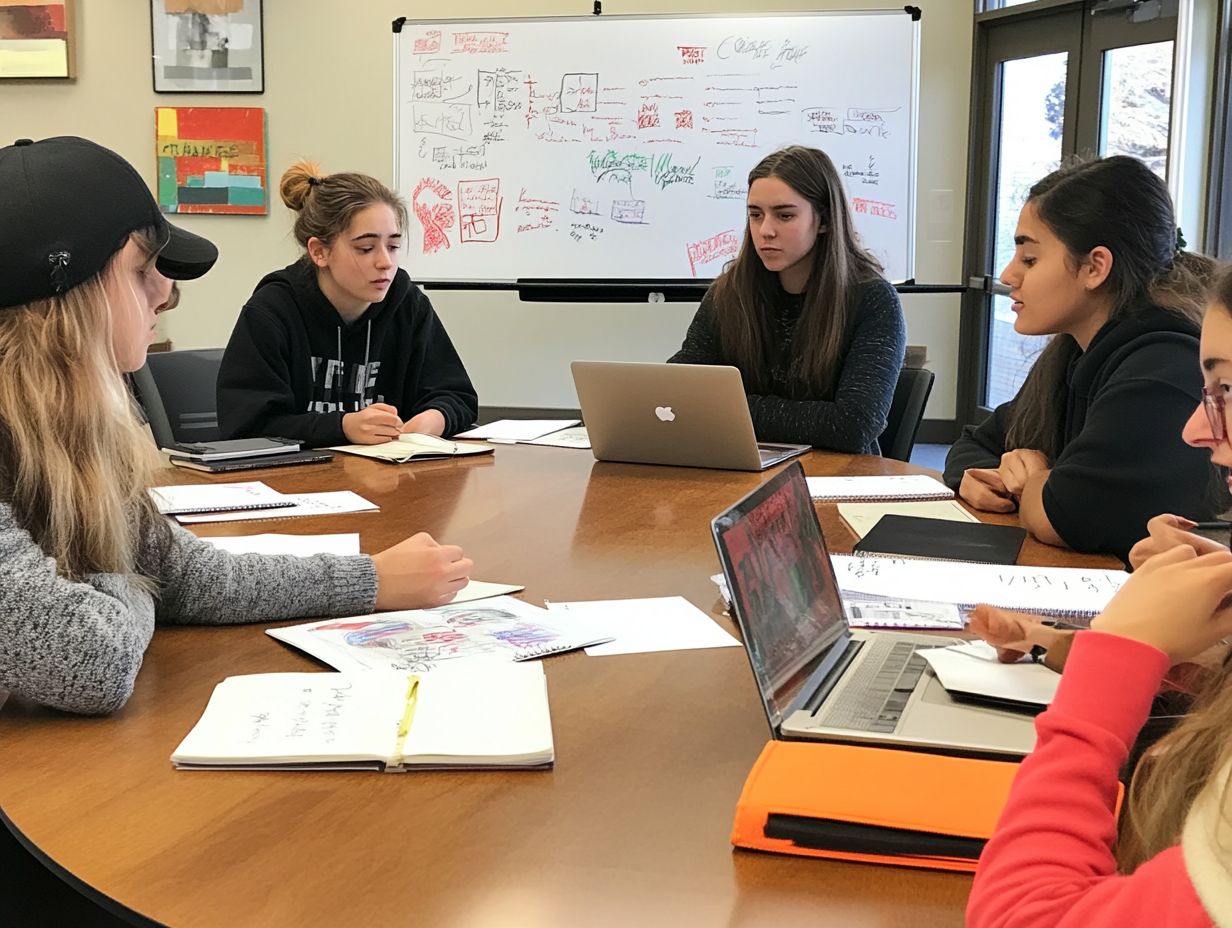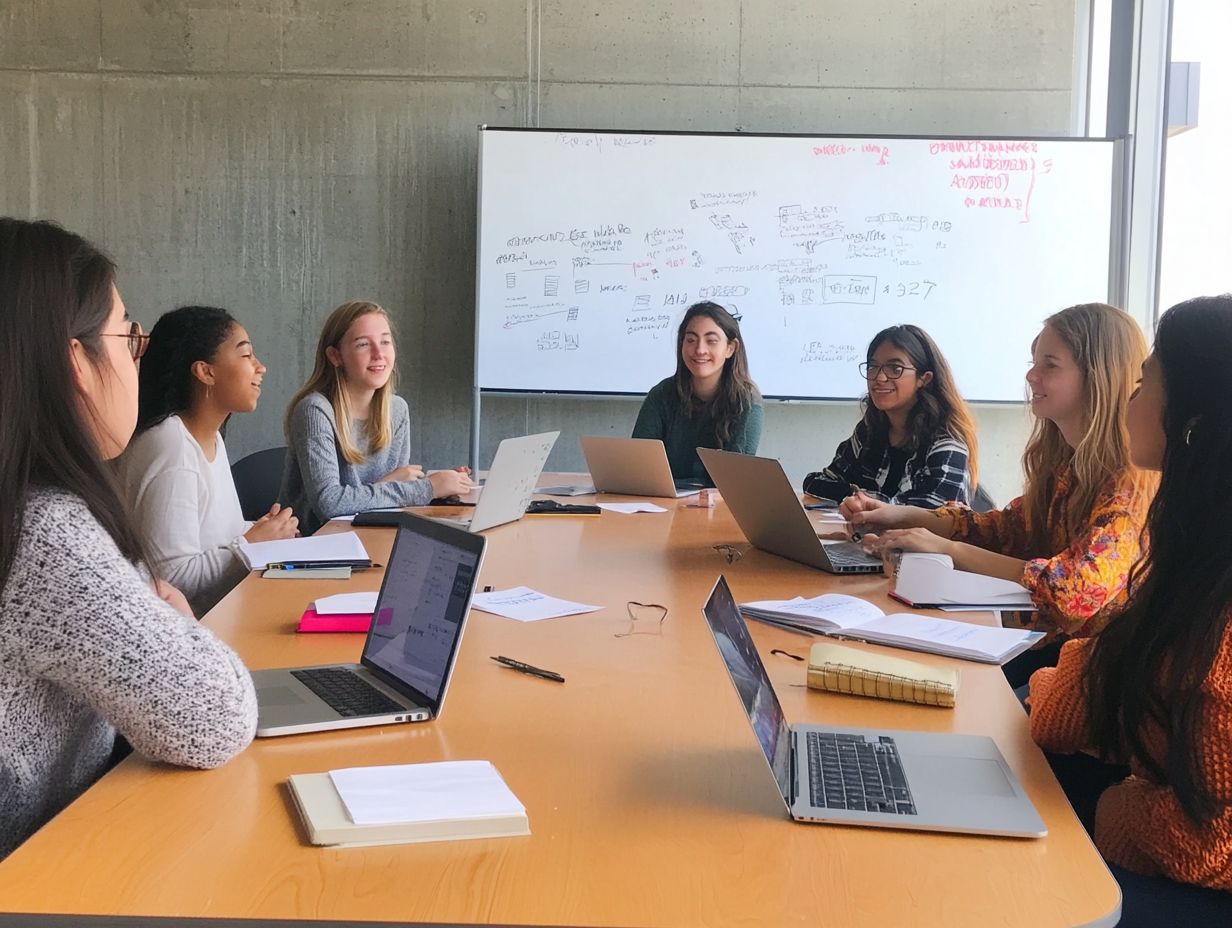How to Create a Unique Academic Narrative
In the competitive realm of academia, your unique narrative has the power to distinguish you and showcase your individuality.
This article delves into the importance of writing your own academic story, guiding you on how to identify and reflect on your experiences and interests. You will also uncover effective strategies for constructing a compelling narrative that seamlessly integrates into your academic pursuits.
Don t miss this chance to explore how your distinctive narrative can truly enrich your academic journey!
Contents
Key Takeaways:

- A unique academic narrative can set you apart from other students and enhance your academic experience.
- Identifying your personal story through reflection can help you craft a compelling and authentic narrative.
- Incorporating your narrative into your studies and sharing it with others can open up opportunities and help you navigate challenges along the way.
The Importance of a Unique Academic Narrative
A distinctive academic narrative is vital for students aiming to create compelling college essays that resonate with admissions committees. This narrative allows you to present your personal story and core values in a manner that reflects your unique experiences and insights.
A well-crafted narrative captivates the reader and lays the groundwork for effective storytelling, significantly impacting the decision-making process during admissions evaluations.
Why Having a Unique Narrative is Valuable
Having a unique narrative showcases your storytelling skills and elevates the writing process, especially when crafting a compelling admissions essay that can set you apart from thousands of applicants.
These narratives do more than relay personal experiences; they reflect your values and aspirations, capturing the attention of admissions committees. Weaving your life story into your essay creates an authentic voice that resonates deeply. A well-crafted narrative can transform an ordinary application into a memorable tale, allowing readers to connect emotionally with your journey.
This ability to engage through storytelling enhances the overall quality of your essay and demonstrates critical thinking and self-reflection key components in academic settings that foster growth and personal development.
Identifying Your Personal Story
Identifying your personal story is an essential step in crafting a compelling college essay. It invites you to reflect on your unique experiences and how they have shaped your academic journey, ultimately informing your character, values, and perspective.
This process encourages you to share the moments that have significantly influenced your growth as a student, allowing your individuality to shine through in your writing.
Reflecting on Experiences and Interests
Reflecting on your experiences and interests is crucial for crafting personal narratives that reveal your character values and showcase the growth you ve achieved through academic and extracurricular endeavors.
This reflective process deepens your understanding of your journey and weaves a compelling story that resonates with others. By exploring your unique experiences, you can uncover the core values that have shaped your decisions and aspirations. Engaging in self-reflection allows you to recognize how various interests whether in sports, the arts, or community service have significantly influenced your identity.
Incorporating relevant keywords and entities related to these interests can enhance your narrative, making it more relatable and impactful. Ultimately, the stories you share evolve into powerful tools for connection and self-discovery, setting the stage for your future growth.
Crafting Your Narrative

Crafting your narrative requires a mastery of effective writing techniques and a deep understanding of narrative structure the way your story is organized. By doing so, you can create a compelling story that captivates readers and eloquently communicates your journey within an academic context.
Start writing your story today!
Strategies for Creating a Compelling Narrative
Employing strategies to create a compelling narrative can greatly enhance your writing assignment, transforming your experiences into an engaging story that resonates with your readers and effectively communicates your message.
A well-crafted narrative often relies on sensory language, allowing your audience to feel, see, and hear the story as it unfolds in their minds. Incorporating clear details can create a clear picture, while authentic dialogue between characters brings them to life, making their journeys relatable and compelling.
Varying your narrative approach whether opting for a first-person or third-person perspective can provide unique insights into character motivations and emotions. Seeking assistance can refine your storytelling techniques and ensure your narratives captivate and inspire your readers.
Incorporating Your Narrative into Academics
Integrating your narrative into your academic work enables you to weave personal stories with your scholarly experiences. This approach enriches your writing in assignments and essays and offers a distinctive perspective that sets you apart in your educational journey.
Discover Exciting Ways to Integrate Your Story into Your Studies
You can use storytelling techniques to forge meaningful connections between your personal narrative and academic subjects.
For instance, if you re diving into history, think about linking your family’s immigration story to conversations about cultural exchange and societal change. This approach humanizes historical events and makes them more relatable. In a science class, sharing your personal experience of overcoming a specific challenge can help illustrate complex concepts like resilience or adaptation.
By employing narrative arc structures, which include the elements of conflict, tension, and resolution, you can enhance clarity and engagement, deepening your comprehension. Utilizing descriptive language can evoke emotions, inviting your peers and instructors into a shared experience that enriches the learning environment.
Mastering these strategies transforms your academic work into vibrant explorations that showcase both your intellect and individuality.
Sharing Your Narrative
Sharing your story is exciting! It creates invaluable opportunities to connect with others. Through student stories, you can illuminate diverse experiences and cultivate a sense of community engagement that enriches all involved.

You have a wealth of opportunities to share your story with others, from community programs to online platforms that encourage engagement and foster connections through personal narratives. Platforms like Medium and StoryCorps offer unique avenues to articulate your experiences, enabling you to connect with a broader audience. Social media channels such as Instagram and Facebook groups can amplify your voice, creating supportive environments where your personal story resonates.
Engaging with these communities cultivates a sense of belonging for you and inspires others who might be navigating similar challenges. By sharing your journey, you can spark conversations, challenge stigmas, and help foster a culture of understanding and empathy within society.
Navigating the challenges of writing and sharing your personal narrative is a journey many embark on. While facing potential obstacles and criticisms can feel daunting, the rewards are immense.
Embracing these experiences ultimately enhances your character and hones your storytelling skills, transforming the process into a valuable opportunity for growth.
Addressing Potential Obstacles and Criticisms
Addressing potential obstacles and criticisms is essential for refining your personal narratives. Constructive feedback will unlock deeper insights and create a more resilient storytelling approach.
This process involves gathering input from peers, mentors, or writing groups. They offer invaluable perspectives that you might overlook.
Embrace techniques like actively listening to feedback, asking specific questions, and jotting down notes to distill useful information from critiques. By implementing this feedback thoughtfully during your revision phases, you enhance the clarity and richness of your narrative while cultivating your overall writing skills. This boosts your confidence in your voice.
Using constructive criticism can transform potential weaknesses into strengths, turning your narrative into not just a reflection of your experiences but a compelling story that truly resonates with readers.
Frequently Asked Questions
What is an academic narrative?
An academic narrative shares your academic experiences, achievements, and goals. It showcases your unique academic journey and provides insight into your academic interests and motivations.
Why is it important to create a unique academic narrative?

Creating a unique academic narrative allows you to stand out from other applicants or students. It also helps you reflect on your academic achievements and set goals for your future academic pursuits.
How do I start crafting my academic narrative?
First, think about your academic experiences and interests. Consider what makes you unique and what sets you apart from others. Then, outline your narrative by including specific examples and details that support your academic journey.
Can I include personal experiences in my academic narrative?
Yes, you can include personal experiences that have influenced your academic path and goals. However, make sure to focus on how these experiences have shaped your academic journey and how they relate to your future academic pursuits.
How can I make my academic narrative stand out?
To make your academic narrative stand out, be specific and use concrete examples to illustrate your academic achievements. Highlight your unique qualities and perspectives that have contributed to your academic growth.
Are there any tips for writing an effective academic narrative?
Yes, some tips for writing an effective academic narrative include starting early, being authentic and honest, and seeking feedback from others. Additionally, make sure to proofread and edit your narrative for clarity and cohesiveness.






